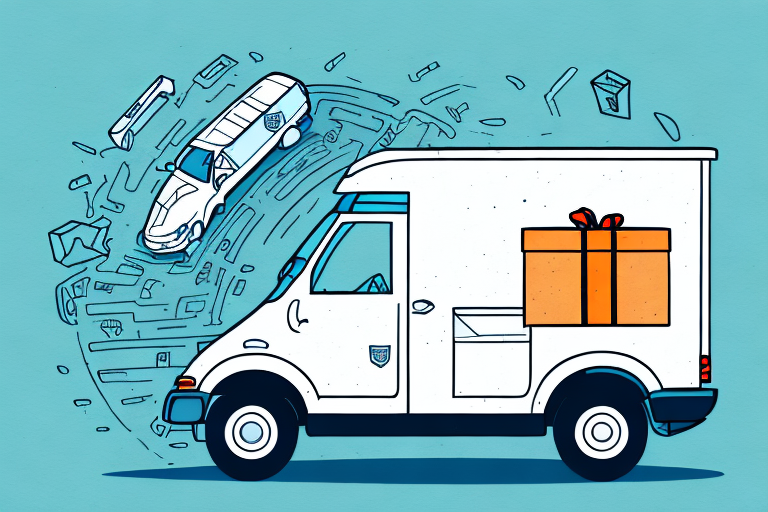Starting Your Own Independent Courier Business
Are you considering launching an independent courier business? With the exponential growth of e-commerce and the escalating demand for swift and reliable delivery services, the courier industry presents a lucrative opportunity. However, success in this competitive market requires thorough research and strategic planning. This guide covers essential aspects to help you start and grow your courier business, including industry insights, market research, legal requirements, operational setup, pricing strategies, marketing, and overcoming common challenges.
Why the Courier Industry is Thriving
The courier industry has seen remarkable growth, primarily fueled by the surge in e-commerce and the increasing consumer preference for fast, reliable shipping services. According to a report by Statista, global e-commerce sales are projected to reach $6.4 trillion by 2024, underscoring the expanding market for delivery services.
Rise of E-commerce
The shift towards online shopping has significantly boosted the demand for courier services. Consumers expect quick and dependable delivery options, prompting couriers to innovate and enhance their service offerings. Features like same-day delivery, real-time tracking, and flexible delivery windows have become standard expectations.
Globalization and International Shipping
As businesses expand globally, the need for international shipping services has increased. Couriers that offer cross-border delivery solutions can tap into a broader customer base, facilitating global trade and business expansion.
Technological Advancements
Technological innovations, such as GPS tracking, automated route optimization, and mobile delivery management apps, have streamlined operations and improved efficiency in the courier industry. These advancements not only enhance service quality but also reduce operational costs.
Market Research and Business Planning
Conducting comprehensive market research is crucial for identifying your target audience and understanding the competitive landscape. This foundation enables you to tailor your services and marketing strategies effectively.
Identifying Your Target Audience
Determine who your potential customers are, their shipping needs, preferences, and geographic locations. Tools like Surveymonkey for online surveys, social media analytics, and local business networking can provide valuable insights into customer behavior and demands.
Competitor Analysis
Analyze existing courier services in your area to identify their strengths and weaknesses. Understanding your competitors helps you find market gaps and opportunities to differentiate your business. For example, if competitors lack weekend delivery options, offering this service can attract customers needing urgent deliveries.
Legal, Insurance, and Business Models
Starting a courier business involves navigating various legal requirements, choosing the right business model, and securing appropriate insurance coverage.
Choosing the Right Business Model
Decide between hiring employees or working with independent contractors. Hiring employees offers greater control over service quality but involves higher costs and administrative responsibilities. Independent contractors provide flexibility and lower upfront costs but may result in less consistent service quality.
Registering Your Business and Obtaining Licenses
Register your business with the appropriate government authorities and obtain necessary licenses and permits. Requirements may vary by location and the scope of your services. Consult resources like the Small Business Administration for guidance on legal requirements.
Understanding Insurance Requirements
Insurance is vital to protect your business, employees or contractors, and clients' packages. Essential coverage includes:
- Commercial Auto Insurance: Covers vehicles used for business purposes.
- Liability Insurance: Protects against claims of property damage or bodily injury.
- Cargo Insurance: Covers loss or damage to packages during transit.
- Workers' Compensation Insurance: Required if you have employees, covering workplace injuries.
Ensure compliance with local regulations and assess the specific insurance needs based on your service offerings.
Operational Setup and Technology
Efficient operations are the backbone of a successful courier business. This involves selecting the right vehicles, acquiring necessary equipment, and leveraging technology to streamline processes.
Choosing a Vehicle
Select a vehicle that aligns with your business needs. Common options include vans, trucks, SUVs, and motorcycles. Consider factors such as fuel efficiency, maintenance costs, cargo capacity, and suitability for your delivery areas. For instance, electric vehicles can reduce fuel costs and appeal to environmentally conscious customers.
Equipment and Supplies
Essential equipment includes:
- GPS Tracking Systems
- Communication Devices (e.g., smartphones, two-way radios)
- Barcode Scanners
- Packaging Materials (e.g., boxes, labels, protective cushioning)
Investing in reliable equipment enhances operational efficiency and customer satisfaction.
Leveraging Technology for Efficiency
Implement technology solutions such as:
- Delivery Management Software: Streamlines route planning, tracking, and dispatching.
- Mobile Apps: Facilitates real-time communication and package tracking.
- Automated Route Optimization: Reduces delivery times and fuel consumption.
Adopting advanced technology can significantly improve your business's operational efficiency and service quality.
Pricing and Marketing Strategies
Developing effective pricing and marketing strategies is essential for attracting and retaining customers while ensuring profitability.
Setting Competitive Prices
Determine your pricing structure by considering factors such as:
- Distance and weight of packages
- Delivery speed (e.g., same-day, next-day)
- Fuel and operational costs
- Market rates and competitor pricing
Tools like ShipBob's Delivery Pricing Calculator can help estimate costs and set competitive rates.
Effective Marketing Strategies
Promote your courier business through various channels:
- Networking: Build relationships with local businesses and organizations.
- Online Advertising: Utilize social media platforms and online directories.
- Professional Website: Establish an online presence with a user-friendly website showcasing your services.
- Promotional Offers: Attract new customers with discounts and special deals.
Track the performance of your marketing efforts using analytics tools and adjust strategies to maximize effectiveness.
Customer Service and Relationship Building
Exceptional customer service is critical for building long-term relationships and fostering customer loyalty.
Providing Excellent Customer Service
Implement the following practices to enhance customer satisfaction:
- Respond promptly to inquiries and feedback.
- Ensure timely and safe delivery of packages.
- Offer personalized services tailored to client needs.
- Exceed customer expectations by going the extra mile.
Positive customer experiences lead to repeat business and referrals, driving your business's growth.
Managing and Tracking Deliveries with Technology
Use technology to monitor and manage deliveries effectively:
- Real-Time Tracking: Allows customers to track their packages in real-time.
- Route Optimization Software: Enhances delivery efficiency and reduces delays.
- Delivery Management Platforms: Centralize data and streamline operations.
Implementing these tools improves operational transparency and customer trust.
Scaling and Expanding Your Courier Business
As your courier business grows, consider strategies for scaling operations and expanding your service offerings.
Hiring Employees vs. Outsourcing
Evaluate whether to hire employees or outsource certain services based on factors like control, cost, and scalability. Hiring employees can ensure consistent service quality, while outsourcing can provide flexibility and reduce overhead costs.
Expanding into New Markets
Explore opportunities in emerging markets such as:
- E-commerce Delivery: Partner with online retailers to handle their delivery needs.
- Medical Transport: Offer specialized services for transporting medical supplies or specimens.
- Same-Day Delivery: Cater to businesses requiring urgent delivery services.
Diversifying your service offerings can open new revenue streams and enhance business resilience.
Overcoming Common Challenges in the Courier Industry
Operating an independent courier business comes with its set of challenges. Proactively addressing these issues can ensure sustained success.
Managing Delivery Delays and Vehicle Breakdowns
Implement contingency plans to handle unexpected delays and vehicle issues. Regular vehicle maintenance and having backup vehicles can minimize downtime and maintain service reliability.
Maintaining Cash Flow
Ensure steady cash flow by managing expenses, setting aside emergency funds, and offering flexible payment options to clients. Efficient invoicing and timely collections are also crucial for financial stability.
Building a Support Network
Connect with other independent couriers, join industry associations, and seek mentorship from experienced professionals. A strong support network provides valuable insights and assistance during challenging times.
Conclusion
Starting and growing an independent courier business can be both rewarding and profitable with the right approach. By understanding the industry's dynamics, conducting thorough market research, adhering to legal and insurance requirements, setting up efficient operations, implementing effective pricing and marketing strategies, and overcoming common challenges, you can build a successful courier business that meets your target audience's needs and stands out in the competitive market. Stay informed, adapt to industry trends, and continuously strive for excellence to ensure long-term success. Good luck on your entrepreneurial journey!





















